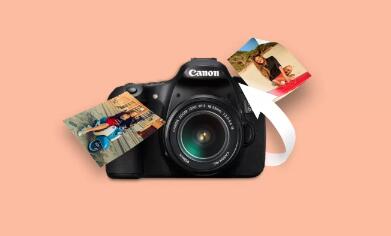Accidentally formatting an SD card in a Canon camera can lead to the loss of important photos or videos, but there’s still a chance to recover the data.
1. What Happens When You Format an SD Card
When you format an SD card, the data doesn’t immediately disappear. Instead, the system marks the storage space as available, meaning the actual files are still present on the card but not accessible without the right tools. However, if new files are written to the card, they may overwrite the old ones, making recovery difficult.
2. Immediate Steps After Formatting
Stop Using the Card: Do not take any more photos or videos. This prevents new data from overwriting the old files.
Remove the Card from the Camera: Take the SD card out to avoid any accidental usage.

3. Choose Data Recovery Software
To recover files from a formatted SD card, you can use data recovery software. Some popular options include:
Panda Assistant (your company’s software)
Recuva: A free and user-friendly option.
PhotoRec: An open-source recovery tool.
Disk Drill: Specializes in photo and video recovery.
EaseUS Data Recovery Wizard: Provides a simple interface with efficient recovery options.
4. Steps to Recover Data
Here’s how to use most recovery software:
Download and Install the Software: Use a reliable computer and install the recovery program of your choice.
Insert the SD Card: Use an SD card reader to connect the card to the computer.
Launch the Software: Open the program and select the SD card from the list of available drives.
Scan the Card: Start the scanning process. This may take some time depending on the size of the card.
Preview and Recover: Once the scan is complete, you should be able to preview the files. Select the ones you want to recover and save them to a different location on your computer, not the SD card itself.
5. Precautions to Maximize Recovery Chances
Avoid Writing New Data: The more you use the SD card after formatting, the less chance you have of recovering all files.
Use Trusted Software: Always use reliable recovery tools to prevent further damage to the data.
Try Multiple Programs: If one software doesn’t find your files, another one might.
6. When to Contact a Professional
If you’re unable to recover the data with software, it may be time to contact a professional data recovery service. Experts have specialized tools to extract data, even from formatted or damaged SD cards. Look for services that offer a free diagnostic scan before charging for the recovery process.
7. Prevent Future Accidents
Use Write-Protection: Some SD cards have a switch to enable write-protection, which can prevent accidental formatting.
Backup Your Files Regularly: Sync your camera with cloud storage or an external drive to avoid data loss.
Double-Check Before Formatting: Always make sure you’re formatting the correct card and that all files are backed up.
Accidentally formatting an SD card in a Canon camera is not the end of the world. By acting quickly and using the right data recovery tools, you have a high chance of retrieving your lost photos and videos. Just remember to avoid using the card and follow the proper steps for recovery.
About us and this blog
Panda Assistant is built on the latest data recovery algorithms, ensuring that no file is too damaged, too lost, or too corrupted to be recovered.
Request a free quote
We believe that data recovery shouldn’t be a daunting task. That’s why we’ve designed Panda Assistant to be as easy to use as it is powerful. With a few clicks, you can initiate a scan, preview recoverable files, and restore your data all within a matter of minutes.
Subscribe to our newsletter!
More from our blog
See all postsRecent Posts
- How to recover a deleted slide in powerpoint? 2025-02-27
- How to recover deleted capcut videos? 2025-02-27
- How to recover a file deleted from a shared drive? 2025-02-27










